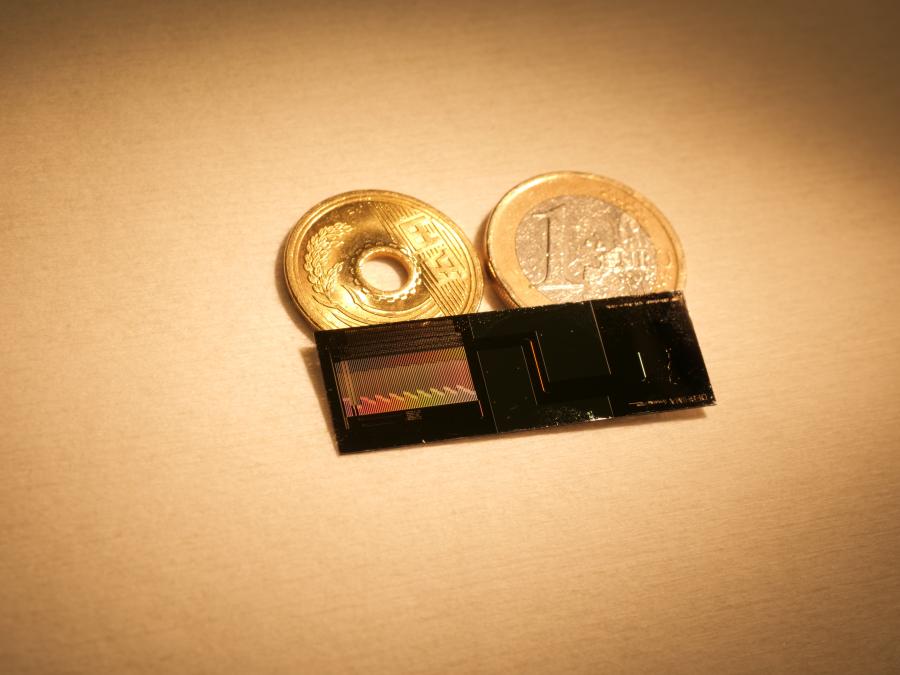Openings at ME
TANDEM: Terahertz Astronomy with Novel DiElectric Materials
Opening for: PhD studentStatus details
| Status: | Closed |
|---|---|
| Announced: | 10 Sep 2019 |
| Closing date: | 10 Oct 2019 |
| Duration: | 4 years |
PDF Version
-
Job Description
On-chip superconducting electronics are revolutionizing the fabrication of astronomical radiation detectors and spectrometers in the far infrared (Endo et al., Nature Astronomy 2019: https://rdcu.be/bM2FN). In theory, superconductors have extremely low loss at very low temperatures and for frequencies up to the gap frequency. For example, NbTiN should have a loss tangent tan δ < 10-6 for any frequency below 1.1 THz. These devices are now predominantly using coplanar waveguide (CPW) structures on crystalline substrates, such as intrinsic Si or Sapphire, because only these materials have losses comparable to the superconducting films. However, the radiation loss of CPW structures become too high in the submillimetre band, limiting the performance and scalability of the devices. These devices would benefit enormously form the availability of a high ε (~10) dielectric that can be deposited on a superconducting ground plane to form, with a superconducting top electrode, an ultra low-loss microstrip.
The aim of the PhD project is to develop superconducting microstrip lines with losses of tan δ < 10-5, by combining the dielectric deposition, characterization, material expertise and facilities of the ECTM group and Else Kooi Laboratory, and the submillimeter wave device fabrication and measurement capability of the Terahertz Sensing group and SRON. The aim is not only to realize low loss dielectrics, but also to understand the underlying physics that governs these losses. If successful, these microstrips will be immediately applied to enhance the scientific performance of the DESHIMA spectrometer on the ASTE telescope (see http://deshima.ewi.tudelft.nl).
Location
To stimulate interdisciplinary research, this cross-section PhD position has two direct supervisors for the PhD candidate: Dr. Sten Vollebregt from the ECTM group will supervise the fundamental material-science research, whereas Dr. Akira Endo will provide guidance in the application to astronomical instrumentation. The two supervisors are located close in the same faculty building and have co-supervised students in the past. The research will be performed in collaboration with SRON (Netherlands Institute for Space Research).
Contact
To apply or for more information, please send an e-mail with your personal CV to Akira Endo (a.endo@tudelft.nl) and Sten Vollebregt (s.vollebregt@tudelft.nl).
Requirements
- Master’s degree or equivalent in physics, electrical engineering, or astronomy (or expected to obtain such a master’s degree soon).
- Experience at least one of the following areas: micro/nanofabrication, material characterization, microwave design/measurements, cryogenic measurements
Contact
dr. Akira Endo
Associate Professor
Terahertz Sensing Group
Department of Microelectronics
More information
Additional information
In The Netherlands, almost all PhD positions are linked to funded research projects. This has several implications:- PhD students are employed: they receive a salary rather than a grant. Most projects have a duration of 4 years.
- Positions become available once a project is funded. This can happen at any time during the year.
- It typically takes 6 to 9 months for a project proposal to receive funding. In this period, a position may be anticipated but the outcome remains insecure. Once a project is funded, the open position needs to be filled as soon as possible.
If you are interested in our research, it merits to inquire whether openings will be available. We collect resumes of prospective PhD students throughout the year, for each of our research tracks.
General requirements
We make our selection based on the following general requirements:- Formal requirements regarding prior education: you should have earned an MSc degree at a recognized institute for higher education.
- Background: you should have a background that fits the requirements of the project
- Excellence: your Grade-Point-Average should be above 8 (10). Also your MSc thesis should have received a grade above 8 (10).
- English: you should be able to communicate well in english (written and oral). Provide TOEFL/IELTS scores if available.
- Originality: your MSc thesis or later work (publications) should reflect some original ideas. Critical and independent thinking is very important.
- Team player: you should be able to work well in a team of other project members.
